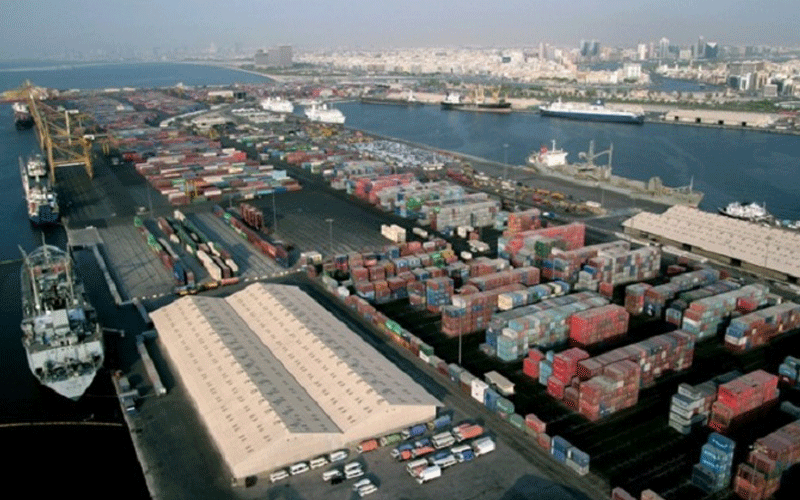The expansion of the Port of Berbera, the building of the road linking the town to the Ethiopian border and the planned construction of the multi-million Berbera Economic Free Zone has brought life into the once sleepy city of Somaliland.
Add that to the rebuilding of the Berbera airport and the Somaliland second largest city seems to be emerging from the shackles to become the key focus point in the horn of Africa.
DP world, the Dubai based world’s largest port operator is the key player in the rebuilding of Berbera, they have invested $442 million for the expansion of the port and are also the economic free zone.
In 2017 when the original agreement was signed, the CEO of DP World Mr. Sultan Ahmed bin Sulayem drew a parallel between the growth of Dubai and the development path Somaliland is on and added “Our vision is to make Berbera a trading and transportation hub for the Horn of Africa.”
Somaliland president Muse Bihi Abdi says “As a nation, the main objective we have of the Berbera Port is to achieve economic growth for our country and share it with the Horn of Africa region and the World.
Our goal is a prosperous Somaliland and we are on that path with the Port construction, Berebera corridor and Berbera Airport which will be an international commercial airport”
Berbera Port historically served as a naval and missile base for the Somali central government.
Following a 1972 agreement between the Siad Barre administration and the Soviet Union, the port’s facilities were patronized by the Soviets.
It was later expanded for US military use, after the Somali authorities strengthened ties with the American government.
But after the 1990 Civil war erupted in the then united Somalia, Somaliland, a former British protectorate severed ties with Somalia but did not have the capacity to rebuild the Berbera Port, strategically located along the oil route which as at 2013, had a 650-metre berth and a depth of 11.5–12 metres.

Bashe Omar, who now the Somaliland envoy to Kenya played a key role in the negotiations to bring DP World to Somaliland.
“DP World saw the potential of Berbera and as the envoy of Somaliland to the United Arab Emirates, I was the first on line when the idea was mooted and we shared the same with the government.
Today we are seeing the growth, the jobs created and the emergence of Berbera as the transportation hub for the region,” says Omar who previously served as the head of Somaliland embassy in the United Arab Emirates.
Bashe is particularly excited about the development of the economic free zone.
Situated on 12 square kilometres, the new free zone will complement the growth of the Port of Berbera as a regional trading hub and generate jobs.
The project is also modelled on DP World’s Jebel Ali Free Zone (Jafza) in Dubai and aims to attract investments, encourage trade, create new jobs and position Berbera as a gateway port for the region.
“Our vision for Berbera is to make it a regional maritime hub in the Horn of Africa and its development will encourage growth for the region’s economy,” said Al Banna.
Once operational, Somaliland joins few countries in sub Saharan Africa with Free Trade Zone and it is expected to attract businesses hoping to sell in the growing African markets.
Says Bashe: “Somaliland is slowly gaining international economic recognition with the developments at the Port of Berbera. From this, the world will not have any other option but to grant us political recognition.”
“The port will have access to the maritime highways that connect Europe, Asia, the Middle East and Africa – firmly establishing the semi-autonomous State as a gateway to East Africa,” adds Omar.
Somaliland declared its separation from Somalia in 1991, but it is yet to be recognised by the international community despite maintaining trade relations and political contacts with a number of countries including Kenya, UK, Belgium, Turkey, Djibouti, Ethiopia and the United Arab Emirates.
Somaliland has been relatively peaceful compared to Somalia, something Omar says has been key to attracting investors.
“We have a long and safe coastline and we are developing the port and fishing infrastructure to attract investors.
Most investors are looking at security along our coastline and even when piracy was at its peak, our coastline was quiet, this is what investors want and because of that, you can see what is happening in Berbera.” said Omar.
One of the regions key ally to Somaliland is the landlocked Ethiopia who own 19 percent of the Berbera port.
While the trade relationship between the two countries remains very strong, it is to Ethiopia’s advantage, to a great extent.
Somaliland exports $600-$700 million worth of goods a year to Ethiopia but the building of the corridor linking Berbera to Ethiopia is playing a key role in handling Ethiopia’s ever-increasing import-export shipment.
Somaliland representative to Ethiopia Ahmed Hassan Egal says the corridor plays a significant role in enhancing trade exchange which is characterized by Somaliland’s import of Ethiopia’s agricultural and industrial outputs.
The excitement in Berbera continues to grow with the growth of the city.
“We cannot wait for all these projects to be complete,” says Abdishakur Mohamoud Iddin, the mayor of Berbera.
By Derek Otieno
#StayHome
![]()





























